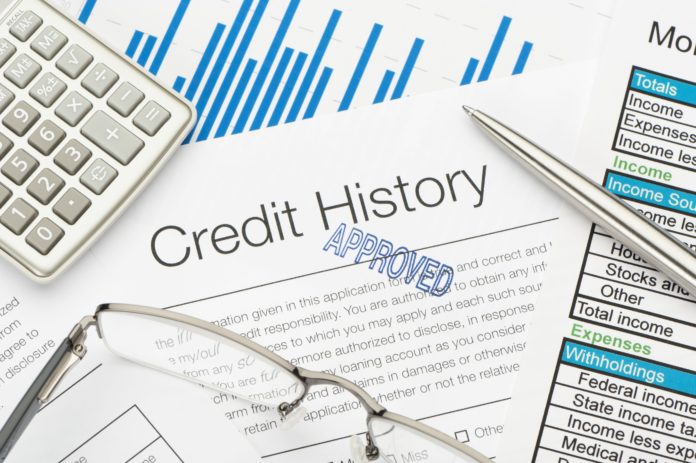Credit scoring’s about predicting future behaviour based on your past. So if you have no past, this can cause you to be rejected for a loan, mortgage, bank account, mobile phone contract or energy tariff. We reveal how to get climbing the credit rating ladder to bag the best products.
The things you need to know to build your credit history
You need a credit history to get credit
It’s an odd fact of life, but you need to have a credit history before lenders will lend to you. The catch-22 is how you get started if no one is willing to lend to you because you haven’t borrowed before? But there are ways to start and the rest of this guide explains why you need a credit history, and how to build yours…
It’s not just for big financial products such as loans, mortgages and bank accounts. These days, getting contract mobile phones, monthly car insurance and even whether you can pay by direct debit on your gas and electricity depends on your credit history.
When you apply for a product, a ‘credit check’ is done. In practice, this means lenders pore over all the data they have on you into a complicated algorithm. It’s an attempt to predict your future behaviour based on what you’ve done in the past. While a poor history counts against you, so does having little credit history as it makes predictions less certain.
Imagine you lend someone money. On the surface, they may appear trustworthy. But if you don’t have much information about them, you probably want to know more.
Register to vote or it can be harder to get credit
The first step to building a credit history is to get onto the electoral roll.
If you’re not registered to vote when you apply for credit, then you may be turned down. That’s because as well as checking how likely you are to pay them back, lenders also have to check your identity when you apply (check that you’re not a fraudster who’ll run off with their cash).
Whether you’re registered to vote at your current address is recorded on your credit file. It doesn’t matter if this is your parents’ address or your term time address (if you’re a student), although ensure you apply for credit at the one you’re registered to vote at. Read more on why you need to be on the electoral roll (and what to do if you can’t register).
Get a specialist student account – with 0% borrowing
At 18 or 19 years old, no one expects you to have built a credit history yet. But if you’re a student, banks have designed specialist accounts which give you the ability to borrow – these are your gateway into the world of credit.
When you open a student account, you can apply for a 0% overdraft. These advertise overdraft limits of up to £3,000, though actual limits tend to be lower, especially in your first year.
Don’t just open a student account with the bank you had an account with when you were a kid, chances are it’s not the best. We’ve full information on the best student accounts, including up to £3,000 0% overdrafts or a free four-year railcard, and what you need to think about when choosing, in Student Bank Accounts.
It’s best to choose on the size of the overdraft, rather than any freebies your bank (or others) chucks at you. If you end up going over your overdraft limit because it’s too low, you’ll pay charges that’ll make the cost of the freebie pale in to insignificance.
A credit card can help you build a credit history, but only if you use it responsibly
There’ll come a time, whether at university or at another early point in your credit journey, when a credit card provider will target you for one of its cards, complete with snazzy marketing.
Credit cards aren’t a bad product in themselves, though in the wrong hands, they can be.
The best cards normally require a decent credit history but there are cards that are designed for people with a poor credit history or a thin credit file.
If you’ve little track record, it’s likely you’ll need to start off with these. Yet because people using them are more risky for lenders, they make the cards quite expensive – interest rates of 34.9% are common.
But if you use these cards sensibly, you won’t ever need to pay this interest rate. Ideally, if you get one, you’ll use it for planned, budgeted normal spending each month, pay it off in full on time, and reap the credit file benefits – doing this shows you can use credit responsibly and pay it all back. Check our guide for the best credit (re)build cards.
WARNING: If you don’t have financial discipline, don’t do this. Credit cards very easily allow you to spend more than you can pay back, even ones that have a low credit limit.
Before applying for a credit card, check whether you’ll get it
It used to be that you just had to apply in hope for any credit card you wanted. This would leave a search on your credit report, which other lenders could see. Too many searches makes you look desperate for credit, and can themselves be a cause of rejection.
We thought this was unfair, so we built our eligibility calculator. It allows you to see which cards you’ve the most chance of getting before you apply – and it doesn’t leave a mark on your credit file that lenders can see (we do what’s called a soft search, which means you can see the search, but lenders can’t, so there’s no impact on your credit file).
While if you’ve little credit history you’ll probably only qualify for expensive cards (as mentioned in the point above), you may as well also check your eligibility for the best cards too, just in case you get a nice surprise. You can use our eligibility calculator to see which cards you’ve a chance of getting.
Stability counts when you’re building your credit history
While you’re a student, you might live at four or five different addresses in and around your university town. That’s going to hinder you when it comes to applying for credit.
Lenders look for stability, they’re looking for you to live in one place, they want accounts that you’ve held for a long time.
If you can, use your parents’ address for all your financial accounts. Keep application details the same between all accounts – the same address, the same phone number, the same bank details.
Using the same ones will help to demonstrate you’re a responsible, stable person, not someone who moves around every year, who they would have a harder time tracing if you didn’t pay them back.
What lenders really know about you
There are a lot of myths about what lenders really know about you when they decide whether to lend to you. And the information they have is a lot more limited than you might think. They know:
- The information in your application form
- Any information from accounts you’ve had with them before
- Your credit history, obtained from one of the credit reference agencies (this includes electoral roll information, your history of credit repayment and more)
Don’t panic if it all goes wrong
The tips in this guide are designed to help you build a good credit history as early as possible. But, nobody’s perfect, and there’s a chance that at some point, you’ll get something wrong – you’ll forget a payment, or simply not have enough money to make the payment.
The first thing to say is, you shouldn’t panic – especially if it happens while you’re young. The old adage ‘time is a great healer’, could have been inspired by your credit record. Your payment history’s kept on there for six years, so by the time you’re in your mid 20s, any student mishaps will have disappeared.
If that sounds like a long time, take heart. While anyone you apply to for credit will be able to see six years of history, they’ll give the most weight to the most recent year or two. So, provided you quickly get back on your feet, any slip-ups shouldn’t ruin your financial future.



















